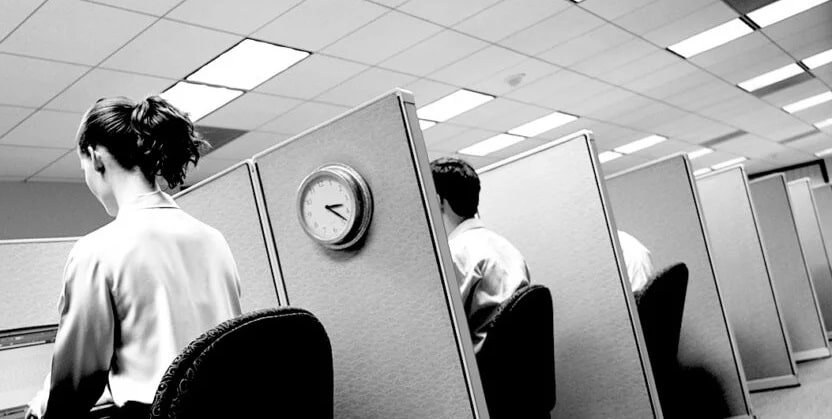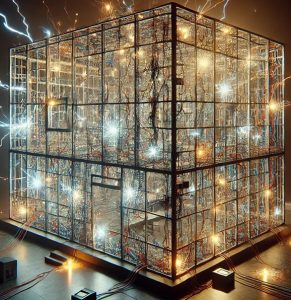If you have insomnia or have trouble sleeping in any capacity, you need to read this. I wrote part two of this article here that breaks down every item in your bedroom that you could optimize for your sleep. I’d highly suggest you read it.
Throughout most of human history we slept outside. Most likely we slept in holes we dug in the dirt, in trees to avoid certain predatory animals or we could have slept in caves. Reconnecting with nature and altering our bedroom environment to support deep sleep is one of the most impactful things we can do to support our health.
Sleeping outdoors is one of the most natural of human practices.
Yet none of us do it, me included.
It’s not until recently did we begin sleeping indoors.
Biologically we were designed to be outside not inside. Being inside shut off from the circadian rhythms and cycles of nature is one of the most unhealthy things we can do. This is why we’re sick and cannot sleep. This is why we have broken circadian rhythms. This is why we cannot sleep and we’re unhealthy.

The more disconnected we get from nature, the sicker we become.
It’s estimated that we spend over 90% of our time indoors. Not only that, but now in modern times we have Wifi, cellphones and blue lighting that becomes the knockout punch. I’ll talk about how these things affect our sleep in other articles in the future.
It’s a double edged sword. We’re disconnected from the very thing that will heal our sleep (and improve our health) which is bad enough but we’re also being exposed to indoor air pollution, nnEMF, and blue light that is really damaging to our biology.
But one thing I want you to keep in mind is the invention of electrical currents in 1879. Prior to that time, health conditions like insomnia, cancer, autism, heart disease and neurological disorders were much more rare than they are now. As we embrace modern technology based lifestyles, the cases of all of these are growing at alarming rates.
Nowadays every home is tied into a grid system of electricity, which is causing oxidative stress, electron loss, circadian mismatches and the formation of reactive oxygen species.
This is a level of stress that’s happening at the cellular level, that we cannot perceive. Similar to how if you record a fluorescent light on your cell phone in slow motion, you’ll notice the “flicker effect”. You cannot perceive it with your eyes, but your nervous system perceives as a major biological stressor.
The same is true when we are indoors.
The wiring in our walls is called dirty electricity because most of it is not grounded and it can be measured up to 6 feet from any wall or outlet in your home. Dirty electricity can be mitigated to some effect by using GreenWave dirty electricity filters near your bed or office, which is what I do.
Now imagine stripping all of the drywall off your walls. Imagine removing the roof and 2 by 4 pieces of wood.
You’d be left with the wires in your home.
I think of these as electrified cages.

We were made in the image of God and our wild by nature, yet we’re like zoo animals disconnected from the natural environment we were created for. Our modern lifestyles have us stuck living in electrified cages, eating processed food, breathing toxic air and living under poisonous light all while being exposed to electrical fields that are preventing deep sleep.
No wonder why more and more people are being diagnosed with chronic insomnia.
The more we disconnect ourselves from nature and adopt modern ways of living the more people are going to have broken circadian rhythms and get diagnosed with chronic insomnia.
So in order to realign with nature we should seek to embrace natural environmental principles and bring them into our home.
If you really want to go all the way, sleeping outside would be the way to go. I’ve never been able to do that, although it sounds kind of fun. I’ve kicked around the idea of getting a well lit tent, putting it in our backyard and sleeping out there during the Spring and Summer months.
I keep threatening my family that I’ll do that. We’ll see. 🙂
But for those of us who would like to sleep inside we need to rewild our bedrooms to mimic nature as much as we can.
In Part 2 of this series I’ll break down the things you definitely should avoid in your bedroom as well as doing what you can do mimic nature for better sleep. I like to call it rewilding your bedroom. I’ll talk about Wifi, lighting, air, temperature, bedding and much more.
Stay tuned for that.
Did you get a chance to check out the reference links in this article and what did you think?
What is your bedroom like? Have you ever slept outside more than 2 or 3 nights in a row? If so, did you notice any difference in your sleep habits or insomnia levels? What about energy levels. What did you notice there? Did you feel more tired when you went to bed if you were camping and sleeping outside?
Comment below and let me know.

